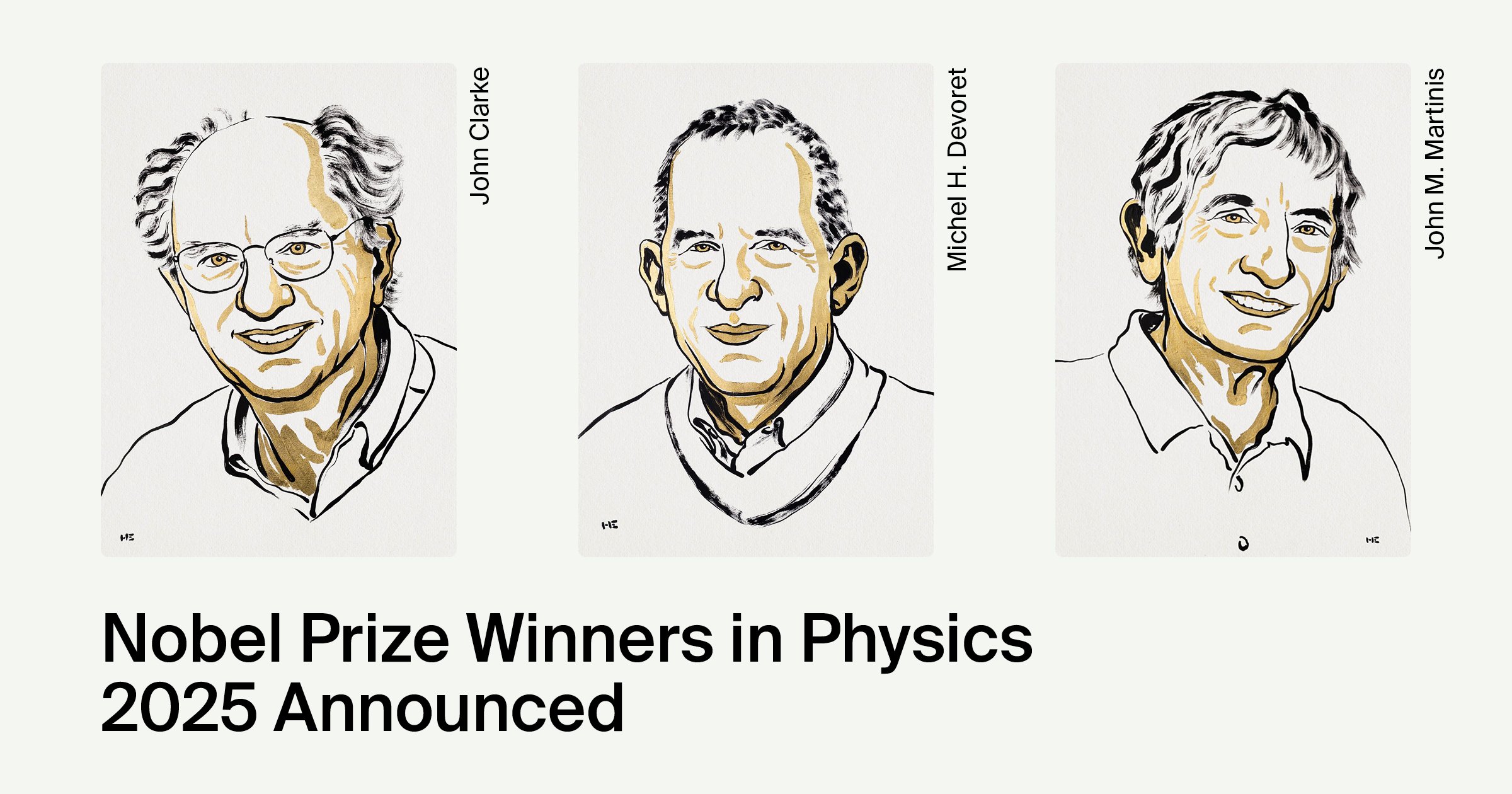7 October 2025
2025 Nobel Prize in Physics Awarded to Quantum Pioneers

You are accessing a machine-readable page. In order to be human-readable, please install an RSS reader.
All articles published by MDPI are made immediately available worldwide under an open access license. No special permission is required to reuse all or part of the article published by MDPI, including figures and tables. For articles published under an open access Creative Common CC BY license, any part of the article may be reused without permission provided that the original article is clearly cited. For more information, please refer to https://www.mdpi.com/openaccess.
Feature papers represent the most advanced research with significant potential for high impact in the field. A Feature Paper should be a substantial original Article that involves several techniques or approaches, provides an outlook for future research directions and describes possible research applications.
Feature papers are submitted upon individual invitation or recommendation by the scientific editors and must receive positive feedback from the reviewers.
Editor’s Choice articles are based on recommendations by the scientific editors of MDPI journals from around the world. Editors select a small number of articles recently published in the journal that they believe will be particularly interesting to readers, or important in the respective research area. The aim is to provide a snapshot of some of the most exciting work published in the various research areas of the journal.
Original Submission Date Received: .

John M. Martinis, John Clarke, and Michel H. Devoret were awarded the 2025 Nobel Prize in Physics for their groundbreaking work on macroscopic quantum tunneling in electrical circuits. Clarke is associated with the University of California, Berkeley, Devoret with Yale University and the University of California, Santa Barbara, and Martinis with the University of California, Santa Barbara.
Macroscopic objects, like balls or everyday devices, usually follow classical mechanics, where outcomes are predictable. Quantum mechanics governs atoms and electrons with probabilistic behaviors. The laureates' experiments showed that quantum effects, like tunneling, previously thought to occur only at the atomic scale, can also appear in systems large enough to see and handle. Their work bridges fundamental quantum physics and practical technology.
“It is wonderful to be able to celebrate the way that century-old quantum mechanics continually offers new surprises. It is also enormously useful, as quantum mechanics is the foundation of all digital technology,” says Olle Eriksson, Chair of the Nobel Committee for Physics.
The trio’s research underpins developments in quantum cryptography, advanced computing, and other quantum-based technologies. John M. Martinis, who led Google’s team that achieved quantum supremacy with a superconducting qubit processor, played a key role in translating these discoveries into practical quantum computing applications. We are excited to highlight recent work co-authored by Martinis and colleagues at the startup Alpha Ring International Ltd., published in MDPI's Journal of Nuclear Engineering in May 2025.
Our heartfelt congratulations go to John and his fellow Nobel Prize winners!
Article published with MDPI
Performance Characteristics of the Battery-Operated Silicon PIN Diode Detector with an Integrated Preamplifier and Data Acquisition Module for Fusion Particle Detection
Authors: Chen, A.X.; Sigal, B.F.; Martinis, J.; Wong, A.Y.; Gunn, A.; Salazar, M.; Abdalla, N.; Xiao, K.-J.J.
Nucl. Eng. 2025, 6(2), 15.
